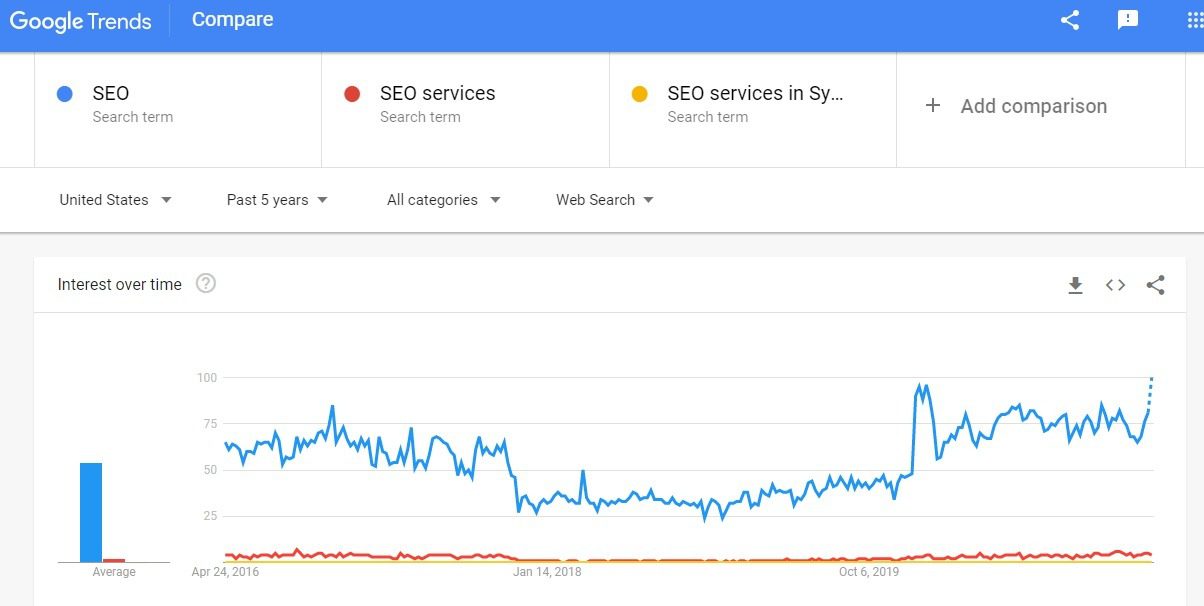The medical sector is extremely competitive in terms of getting noticed online, which is almost entirely due to the fact that we all need to use healthcare services at various points in our lives.

In this article, we learn more about 9 ways healthcare organizations can get noticed on Google’s results pages (SERPs) and ultimately drive more patient traffic through their doors.
Create Engaging Content on Trending Topics in your Healthcare Niche
Effective content marketing is one of the best ways of attracting new patients. It works on the simple principle of providing the kind of information people will be searching for using Google. For that reason, content should be relevant to your healthcare niche or particular specialties and contain keywords people are likely to use in search queries.
Say for example an individual is looking for maternity services in their area. They are likely to type in Google’s query box something along the lines of “maternity services in California”. Creating content that details maternity services offered and including relevant keywords and location information increases the chances that the query will be met with your content. The more good quality, informative, and relevant content you generate for each department of your facility, the more it will appear in SERPs.
Optimize Content with Page Headers, Titles, and Backlinks
When creating a new page or post title for a healthcare website, they should be based on the specific topic covered, with correct grammar and no hyphens if possible. It’s always a good idea to research the keywords you want to use in a title in terms of popularity relating to the trend or field you are writing about.

The body of your content should contain links to other pages or posts on your website in order to keep the visitor engaged for as long as possible. Sharing links is an effective way of boosting SEO and increasing page views from visitors who are encouraged to browse.
Use a Content Management System (CMS) That Supports SEO Plugins
The most commonly used CMS is WordPress which allows you to install SEO plugins such as Yoast. This enables you to ensure all the SEO elements of each blog post or page content are in place before you publish them.
By using tags, meta tags, and other keywords for each page your chances of a good position in SERPs are much better. Most SEO plugins provide some form of checklist to guide you, which is particularly beneficial for those without a great deal of knowledge on the use of metadata.
Allow Guests to Contribute Their Posts to Your Website
Introducing guest posts from other medical practitioners and professionals to a healthcare website helps to create a community for centers and facilities. Having guest posts also extends the website’s audience through links to the author’s website and social media profiles. The idea is to engage visitors to the website with good-quality content while also increasing interaction with other websites to boost SEO.
Guest Blog on another Site
Alternatively, you can also connect with other healthcare organizations by creating guest posts for their websites. Sharing your posts on other sites not only improves SEO but also increases authority and credibility within your field.
Ultimately, the more your website’s optimized pages and links feature on other websites, the higher your SERP ranking is likely to be.
Create and Link Your Social Media Accounts
Nearly all professional organizations and individuals have social media accounts. These act as an extension to your website by reaching a wider audience. The majority of people have social media accounts and they will also at some point wish to seek care or treatment in some form.
Social media accounts provide an excellent way to connect with patients both existing and prospective. There is something more personal about connecting with people on social platforms, particularly for medical professionals.
Share Relevant and Engaging Updates on Social Media Using Relevant Keywords
Social media is highly effective for boosting your website’s SEO and it provides an opportunity for healthcare providers to engage with patients at a local level. It is now possible for people to make appointments via Twitter or Facebook and schedule consultations, which is a positive boon to SEO.
Many healthcare providers use infographics on specific health conditions as a form of engagement on social networks. Ultimately, the content should be compelling because every time you share on social media, it boosts your website’s overall SEO in a completely organic way.
Use Google Maps to Enhance your SEO
According to research, the majority of people access the internet using their mobile phones. More specifically, when looking for a healthcare center, they are likely to use Google Maps to find out where the nearest center or facility is.
It is always important for organizations that have physical premises to list them with Google Maps but in recent years, it has become a very effective form of SEO. Basically, your healthcare facility will show up in any relevant query to your geographical location if you are listed with Google Maps. Ultimately, it’s about making it as easy as possible for prospective patients to find out where you are when they need you.
Create Accelerated Mobile Pages (AMP)
Accelerated Mobile Pages are relatively new in the SEO world. The point of them is to make mobile browsing much easier for the user. As mentioned above, the majority of people access the internet using their phones. An AMP page is stripped down to a very basic text format so that it loads quickly and efficiently in response to a Google query.
Although most people now have mobile responsive websites, they are still slow to load for many people and the inclination is to disengage rather than wait. AMP ensures people get the results they seek almost immediately while optimizing your website’s SEO. CMS like WordPress offers plugins to help you create AMP pages for every post or page on your site, making it a simple process to boost your SEO.








